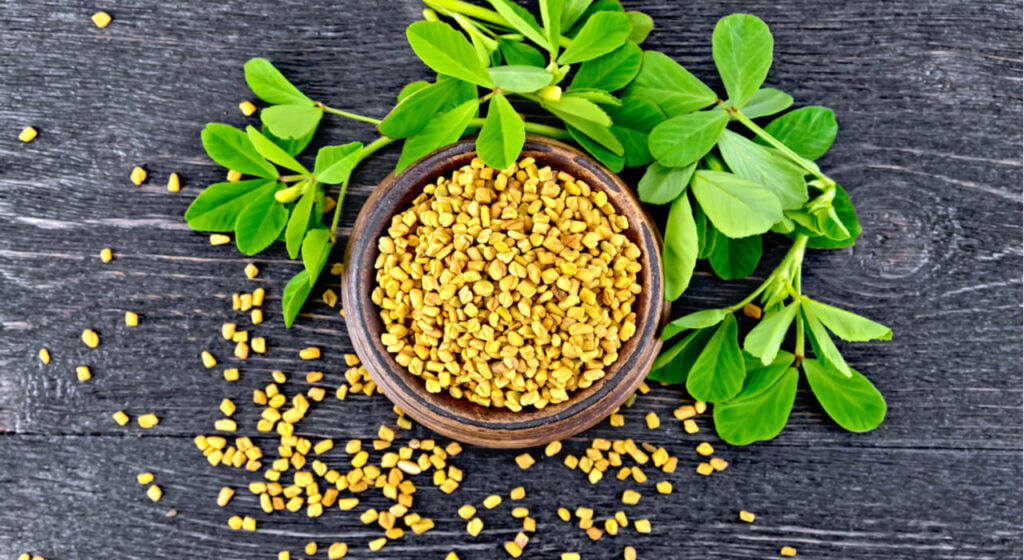Research has shown that taking fenugreek can increase libido and testosterone levels in men. It can also help with the production of lean muscle. In addition, men have reported an increase in libido when given fenugreek on a daily basis. Here’s a few of the ways that fenugreek benefits men:
Boosts libido
Table of Contents
If a man’s libido is low, he may need help restoring it. Physiological causes can lead to lower libido, and it can also be the result of emotional or psychological issues. In these cases, talking to a therapist or your partner may help. Also, revisit your relationship and home and see if you can make any simple changes to improve your sex life. If you cannot fix the problem by making changes, you can take a supplement that supports your immune system.
Herbal aphrodisiacs can also help improve libido in men. Some of these herbs include safed musli, mondia whitei, saffron, and Panax ginseng. These herbs contain compounds that increase blood flow and increase libido.
Chocolate-covered strawberries are also said to increase libido. The chocolate in strawberries contains phenylethylamine, which increases feel-good chemicals in the brain. Oysters, on the other hand, contain zinc, which may boost testosterone levels and sperm production.
If you notice a sudden change in your libido, you may need to see a doctor. Your doctor can rule out any underlying health conditions. While some supplements and lifestyle changes can increase libido, you should also consult a doctor before using them.
If your doctor has diagnosed your low libido, he can prescribe treatments that will help your body balance the hormones in your body. Low testosterone levels, for example, can cause low sexual desire. In these cases, testosterone replacement therapy may be recommended. This type of therapy can restore energy levels, sex drive, and sexual function.
Increases testosterone levels
Fenugreek is a natural supplement that can boost your testosterone levels. This ingredient is known for its long history of medicinal uses in many parts of the world, including India and North Africa. It has a unique and complex aroma and is now grown around the world. In one study, a group of men who took 500 mg of fenugreek extract daily for 12 weeks experienced an increase in free testosterone levels of 12.0 +/ 5.7 pg/mL.
In addition to boosting testosterone levels, fenugreek has anti-inflammatory and antioxidant properties. This means it can decrease the effects of oxidative stress, a major cause of low testosterone. It can also inhibit the activity of the enzyme aromatase, which converts testosterone into estradiol.
The benefits of fenugreek are numerous and can be found in a variety of health products. It is rich in saponins and coumarins, which have been linked to a wide variety of benefits. Saponins, in particular, have been linked to reducing cholesterol and blood sugar levels. Fenugreek has also been used in traditional Chinese medicine to treat male weakness. In addition to boosting testosterone, fenugreek can also increase libido and improve sexual drive.
Other supplements that increase testosterone levels include vitamin D, zinc, and ashwagandha. These are not as effective as TRT and should be taken with the advice of your physician. They should be accompanied by a healthy diet, which includes plenty of protein, healthy fats, fruits and vegetables, and limited amounts of refined foods and added sugars.
In one study, men taking 600 mg of Fenu-FG daily experienced a significant increase in testosterone levels compared to placebo-treated subjects. This was due to an increase in free testosterone levels, which was 12.6 +/ 5.9 pg/mL. Other outcome measures, such as FSH and LH, did not change.
Increases lean muscle
Fenugreek increases lean body mass in men through a variety of mechanisms. It decreases appetite, promotes digestion, and has blood sugar-regulating properties. The latter property is crucial, because excess sugar can be converted into fat. This cycle is broken by increasing lean body mass.
One study compared the effects of fenugreek supplementation with placebo in men. The results of the study revealed that the supplementation with fenugreek was safe and well-tolerated. Furthermore, it enhanced muscle strength in both the upper and lower body. In addition, the men who took fenugreek supplementation reported no side effects.
Fenugreek has been shown to increase the strength of the leg press and bench press. It also improves the body composition when used in conjunction with resistance training. It can be bitter when uncooked, but it’s also sweet when cooked. In addition, it can interact with some medications, including diabetes medications. For this reason, it’s important to talk to your doctor before increasing your fenugreek intake.
Fenugreek has numerous uses in folk medicine. Aside from its anti-inflammatory properties, it has also been linked to increased testosterone levels. The herb has been known to increase male libido, improve digestion, and prevent inflammatory diseases. In addition to helping with weight loss, fenugreek can help men with erectile dysfunction and improve their sex life.
Lowers cholesterol
Fenugreek has several benefits for men. It can lower cholesterol and increase testosterone levels in men. It is usually taken in powder form in amounts of ten to 30 grams three times daily. Fenugreek is also beneficial for lactating women and people with type 2 diabetes. However, you should only take it if you have a doctor’s advice.
Fenugreek is rich in saponins, a compound that slows the absorption of cholesterol in the intestines. It also inhibits cholesterol production in the liver. Its saponins may also help increase the amount of HDL cholesterol in the blood. The soluble fiber content of fenugreek also helps in its activity.
Fenugreek is considered a low-glycemic carbohydrate, which is important for a healthy diet. It is also a good source of dietary fiber, protein, and minerals. Although fenugreek has been shown to lower cholesterol levels in men in animal and human studies, more research is required to confirm its clinical efficacy in men.
Studies have shown that fenugreek reduces total cholesterol levels and triglycerides. It has also been shown to lower blood sugar levels. It has also been found to be beneficial for appetite control. It is a low-cost and low-risk supplement that may be beneficial to certain patients. Nevertheless, you should consult a physician before taking fenugreek supplements.
Fenugreek is a very interesting plant with many uses. It is grown in Asia, South America, and the Middle East and is used to treat a variety of ailments. Many people use it as a spice or seasoning in dishes. It is used to make curries and to flavor meat.
Lowers fertility
There is little scientific research on fenugreek and male fertility, but the herb has been used in traditional medicine for centuries. It’s also a common ingredient in cooking. It’s known for its benefits, which include weight loss, reducing the risk of diabetes, and supporting reproductive health. In addition, there are a number of health benefits of fenugreek, which may make it an attractive option for some men who want to boost their virility.
It is also used to treat kidney disease, vitamin deficiency, and cancer. It has a variety of uses in the body, including increasing sperm count and quality. It may also improve exercise performance and sexual interest. Fenugreek is also used to stimulate milk production in women, and some studies have even linked its use to increased libido.
Fenugreek is a common ingredient in Indian and Middle Eastern cuisines, as well as in supplements. Its anti-inflammatory properties may help manage the symptoms of menstrual cramps and the effects of menopause. Fenugreek also helps control blood sugar levels.
Research on fenugreek seeds has also shown that the plant can increase free testosterone, improve sperm morphology, and improve mood. In fact, a study on FurosapTM, a patented fenugreek seed extract containing 20% protodioscin, showed that a placebo-controlled trial of Furosap increased sperm count, total testosterone, and sperm morphology in healthy men.

